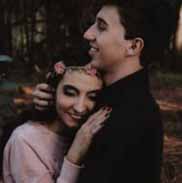Chapter 12- Topics In College Mathematics
Unlock all answers in this set
Unlock answersquestion
Experiment
answer
controlled operation that yields a set of results
question
Outcomes
answer
possible results of an experiment
question
Event
answer
subcollection of the outcomes of an experiment
question
Empirical Probability
answer
P(E)- relative frequency of occurrence of an event and is determined by actual observations of an experiment.
question
Theoretical Probability
answer
determined through a study of the possible outcomes that can occur for the given experiment.
question
P(E) is read:
answer
\"P of E\"
question
Formula for Empirical Probability
answer
number of times event E has occurred/ total number of times experiment has been performed ex: 3 out of the 5 batches of cookies were burned. P(E)- 3/5
question
The probability of an event, whether empirical or theoretical, is always:
answer
a number between 0 and 1.
question
Probability may be expressed as:
answer
a decimal number or a fraction.
question
Empirical probability is used when:
answer
probabilities cannot be theoretically calculated.
question
Law of Large Numbers:
answer
probability statements apply in practice to a large number of trials, not to a single trial. It is the relative frequency over the long run that is accurately predictable, not individual events of precise totals.
question
Equally likely outcomes:
answer
If each outcome of an experiment has the same chance of occurring as any other outcome.
question
Probability formula (theoretical)
answer
number of outcomes favorable to E/ total number of possible outcomes.
question
The probability of an event that cannot occur is:
answer
zero.
question
The probability of an event that must occur is
answer
one.
question
The sum of the probabilities of all possible outcomes of an experiment is:
answer
one.
question
Odds against an event formula
answer
event fails to occur/event occurs = failure/success
question
Odds against an event is:
answer
ratio of the probability that the event will fail to occur.
question
odds in favor of an event
answer
ratio of the probability that the event will occur to the probability that the event will fail to occur.
question
Expected value (expectation) formula:
answer
E= p1(a1)+p2(a2)+p3(a3)....pn(an)
question
to turn a % into a decimal:
answer
divide the number by 100. ex: 27%= 0.27
question
Expected value:
answer
the expected gain or loss of an experiment over the long run
question
if an individual expects to have a gain in the long run, the expected value is:
answer
positive
question
Fair price formula:
answer
Expected value+cost to play
question
E=
answer
(win)(winnings)+(lose)(losses)
question
Sample space:
answer
a list of all possible outcomes of an experiment
question
Counting principle
answer
Sample space= M(N)
question
With replacement formula:
answer
*# of ways stays the same, since it can be replaced. Multiply the number of ways together (as many as needed) ex: 2 cards out of 10= card 1 has 10 ways. card 2 has 10 ways 10*10= 100 ways.
question
With replacement means:
answer
whatever is chosen can be put back, giving the next option the same amount of choices.
question
without replacement means:
answer
whatever is chosen is NOT put back, giving the next option one less from the amount of choices.
question
without replacement formula:
answer
ex: 2 cards out of 10 card 1 has 10 ways card 2 has 9 ways 10*9= 90 ways
question
counting principle ex with replacement:
answer
four batteries, three selected at random, with replacement: 4(total batteries)*3(taken out at a time)= 4 to the 3rd power. 4*4*4= 64 sample points
question
counting principle ex without replacement
answer
four batteries, three selected at random, without replacement: 4(total batteries)*3(taken out at a time)= 4*3*2 (3 total batteries)= 24 sample points
question
compound probability problems:
answer
probability problems that contain the words 'and' or 'or'
question
independent events
answer
(for two events A and B) the occurrence of either event in no way affects the probability of the occurrence of the other event.
question
Experiments done with replacement result in _____ events.
answer
independent.
question
Addition formula for probability:
answer
P(A or B)= P(A)+P(B)- P(A and B)
question
Conditional probability:
answer
probability of E2 happening, given that E1 has happened
question
When a question states\"what are the chances of\"....... \"given that\".....
answer
always group FIRST according to the given.
question
The symbol for n factorial is:
answer
n!
question
permutations formula:
answer
nPr= n!/(n-r)!
question
(EX) notation that expresses the number of permutations of 6 items taken 2 at a time
answer
6P2 (total number) P (how many is taken at a time)
question
! is:
answer
the product (multiplying) of all the natural numbers less than the number and itself.
question
example of != 4!=
answer
4*3*2*1= 24
question
sample problem of Permutations: 10P4
answer
10!/10-4!= 10!/6! (this means that you take the last 6 from the problem) 10*9*8*7 (last 6 are gone.) this eliminates the denominator as well. 10*9*8*7= 5040
question
6P6 in this equation, it cancels itself out, so just solve as if it were just 6!
answer
6*5*4*3*2*1= 720
question
11 members.. 3 chosen at a time. how many arrangements?
answer
number*people chosen at a time 11*10*9= 990
question
3 letters and 2 digits. with repetition
answer
26*26*26*10*10 (26 letters) (0-9= 10 numbers)
question
3 letters and 2 digits without repetition
answer
26*25*24*10*9 26 letters, minus one each time. (for 3 letters) 10 numbers, minus one each time for 2 digits.
question
3 digit code with digits 1-9 repetition allowed
answer
9*9*9 9 numbers 3 digits
question
combination
answer
distinct group of objects without regard to their arrangement
question
if order of arrangement is important,
answer
permutations are used
question
if order of arrangement is not important,
answer
combinations are used
question
C and P
answer
combinations and permutations
question
Combinations formula
answer
same as permutations formula, but with added r on denominator



